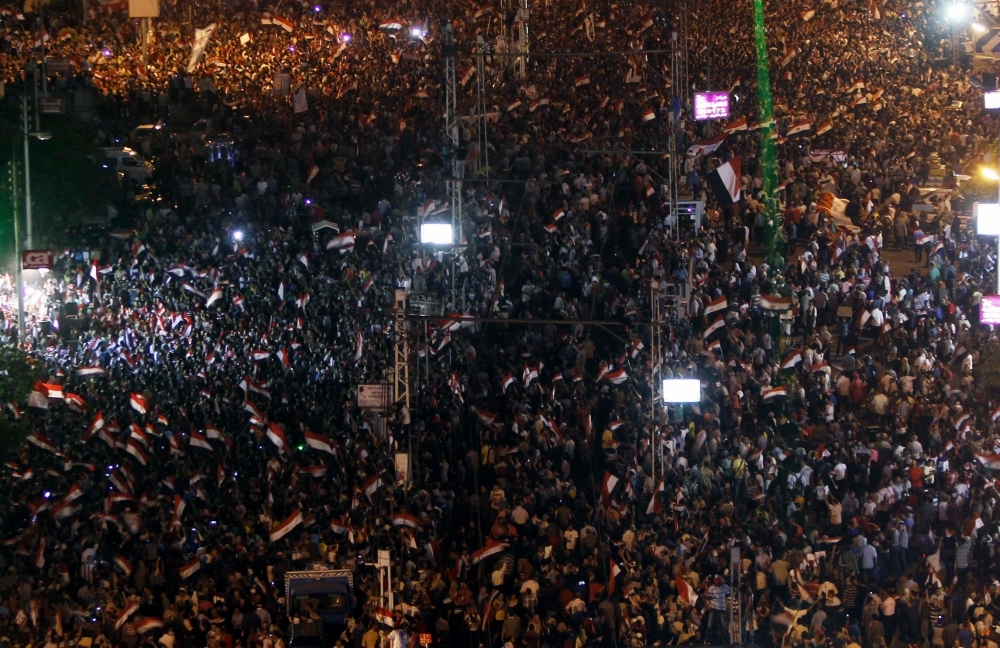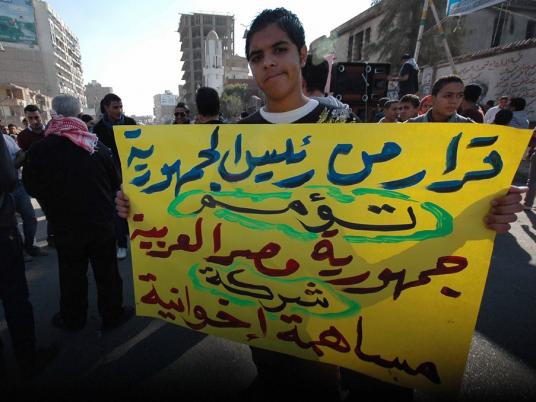Al-Ahram leads its front page with further coverage of the van Gogh Poppy Flowers theft and the continuing aftermath. Today’s developments center on a meeting between Public Prosecutor Abdel Meguid Mahmoud and embattled Culture Minister Farouk Hosni.
The paper’s language seems carefully calibrated to keep Hosni off the firing lines and free of suspicion and blame for the van Gogh debacle. The minister isn’t summoned, the paper says. He merely goes to "meet" the prosecutor. And the exchange is presented more as a conversation between colleagues than the questioning of a potentially negligent official.
According to the paper, Hosni told Mahmoud that he would have closed the museum if he had been aware of the malfunctioning security cameras and alarm systems.
Hosni and one of his senior deputies, Mohsen Shaalan, have been trading blame for a couple days now over the poor state of the security systems at the Mahmoud Khalil museum that allowed thieves to boldly cut the US$50 million painting out of its frame during the middle of the day.
Deputy Culture Minister Shaalan, who had an office on the museum grounds, has been detained for questioning, along with four museum employees.
In the independent press, Al-Shorouq handles the same issue with significantly less deference toward Hosni. The front-page sub-headline says Shaalan, through his lawyer, accused Minister Hosni of ignoring his requests for an upgrade to the museum’s security system. The article presents Shaalan’s side of the story: that Hosni was fully aware of the situation at the museum but failed to provide the necessary resources to address the poor security conditions.
Privately-owned Al-Dostour presents an interesting front-page question: “What’s the next step for ElBaradei after the signatures on the petition for reform reach one million?”
The signature campaign has been going strong for a couple of months now, with the powerful and organized Muslim Brotherhood contributing considerable political might to gathering names for ElBaradei’s seven-point list of reform demands. The estimated number now stands at more than 500,000 signatures. It seems clear that the campaign will eventually reach its informal goal of one million.
The Dostour article manages to spend a lot of print chewing over the topic without providing new information. There’s much talk about a boycott of the upcoming parliamentary elections, but boycotts are hard to maintain if everybody isn’t on the same page. The Brotherhood still hasn’t made up its mind whether to boycott, while the new leadership of the Wafd Party seems inclined to participate in the elections.
Finally Al-Dostour brings us news that might cause concern for fans of the feisty newspaper and its unique personality. A brief “announcement to our readers” at the top of page three informs the audience that the newspaper has been sold to a group of investors headed by prominent businessman Sayyed Badawi. That’s the same Badawi who now leads the Wafd Party.
The announcement seems intended to reassure readers that Dostour won’t be turning into Wafd Newspaper Version 2.0—Badawi declares his faith in longtime Editor Ibrahim Eissa, and its intention to continue the newspaper’s trademark tone and personality.
Egypt's papers:
Al-Ahram: Daily, state-run, largest distribution in Egypt
Al-Akhbar: Daily, state-run, second to Al-Ahram in institutional size
Al-Gomhorriya: Daily, state-run
Rose al-Youssef: Daily, state-run, close to the National Democratic Party's Policies Secretariat
Al-Dostour: Daily, privately owned
Al-Shorouq: Daily, privately owned
Al-Wafd: Daily, published by the liberal Wafd Party
Al-Arabi: Weekly, published by the Arab Nasserist party
Youm7: Weekly, privately owned
Sawt al-Umma: Weekly, privately owned



